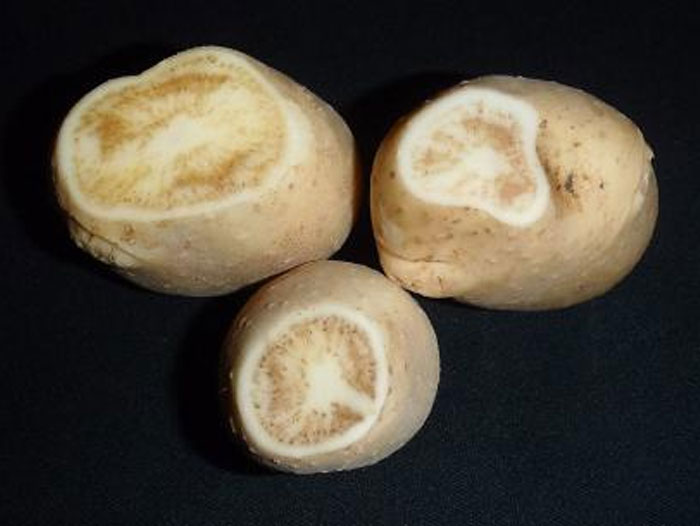Bad Actors in the ‘Zebra Chip’ Fight are Stacking the Deck
September 17, 2024 | 1 min to read
Researchers are investigating the incurable zebra chip disease affecting potatoes, linked to the bacterium Candidatus Liberibacter solanacearum (Lso). While previously identified three Lso haplotypes were thought to be carried solely by the potato psyllid, scientists discovered four additional insect carriers in Washington and Oregon. These new carriers harbor previously unknown Lso variants, prompting further evaluation on their ability to transmit the disease to potato crops.

Zebra chip is a disease of potatoes that has no cure, but scientists are on the case. They know the bacterium that causes the disease and the insect that carries it. But now, researchers have discovered something they did not know – three new genetic variants (known as haplotypes) of the bacterium and four new insect carriers.
The bacterium is known as Candidatus Liberibacter solanacearum (Lso). Scientists previously knew of three Lso haplotypes in U.S. potato crops but were uncertain whether all three variants are vectored (transmitted) only by the same insect, the potato psyllid. This uncertainty led scientists to collect psyllids other than potato psyllid to look for presence of Lso. The searchers led to the unexpected discovery that there are four psyllids other than potato psyllid that harbor Lso in Washington and Oregon. More interestingly, the Lso harbored by these four psyllids are new variants previously unknown to science. Scientists now are evaluating the psyllid hosts to determine if they transmit these new Lso variants to potato.
To read the rest of the story, please go to: USDA, Tellus
